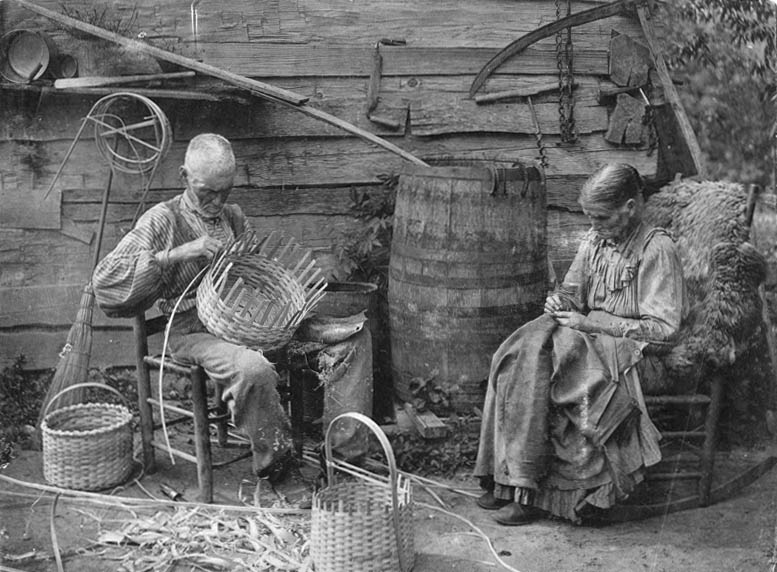Previously titled “Ignorance – Fighting the Appalachian Stereotype”
Appalachians have been looked down upon, made fun of, and dehumanized as “uneducated,” “backwards,” or just down right “ignorant.” I myself would often denounce such stereotyping, but as of late I cannot help but acknowledge that many Appalachian people are fulfilling the descriptions placed upon them.
The Appalachia I grew up in was full of older generations who may not have had formal educations, but they were nevertheless highly intelligent. My grand parents and great grandparents were skilled and crafty, capable of living off the land making medicines and salves, and despite not knowing engineering design process, they could build and repair farm implements to make their lives that much easier.
Their handshake was as good as any legal contract, and their beliefs often centered upon the golden rule of “do unto others as you’d have them do unto you.” For many, this often translated into loving thy neighbor and other lessons such as “giving is better than receiving.” Such knowledge and understanding was the fiber from which some of the most tight nit communities in our nation were weaved. It was essential to making a life of subsistence farming (and freedom) possible in the mountain wilderness.
Mountain people were only considered “uneducated” or “ignorant” by societal standards within societies that measured people’s worth by the amount of useless materials they could purchase, or the amount of people whose labor they could exploit so they themselves didn’t have to supply the food for their own tables.
There is no doubt that literacy rates were low in the mountains. For many, reading and writing wasn’t necessary except on rare occasions. Poor literacy rates were also related to the lack of schools. This was especially true during reconstruction when confederate states withheld educational funding from union sympathizing communities in mountain areas. It wasn’t until the turn of the 20th that some areas had schools, giving rise to the settlement schools, for instance, in eastern Kentucky.
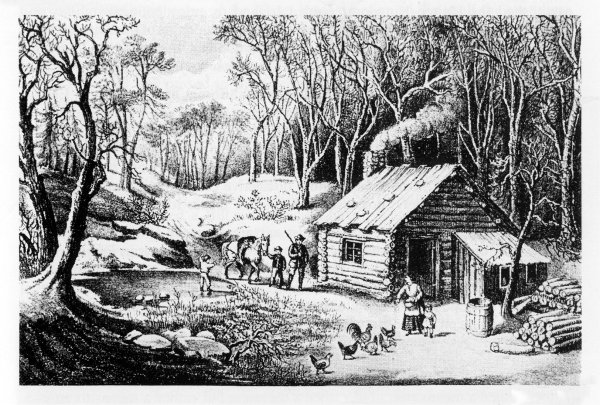
Literacy aside, “down home” intelligence, as I refer to it, far outweighed a college degree making any derogatory statements about the intelligence of mountain people unfounded and morally wrong. Times have changed however.
Our ancestors were forcibly transitioned from subsistence lifestyles to economic survival within a materialistic society during industrialization.1 Growing populations, depleting mountain soils, and absentee land ownership issues through unethical land and mineral rights grabs made subsistence lifestyles nearly impossible. This transition has been well documented with the tensions playing out in a variety of Appalachian novels. People were facing increasingly limited choices.
Their lack of access to education, coupled with the mono-economy put in place by the coal industry, sealed the fate of our forefathers and literally damned them to a life of coal company servitude. Starting unions, fighting the greed and control of coal companies, and doing what they could to be good neighbors despite the circumstances, is the true heroism and self-sacrifice I associate with the coal mining profession.
Sadly, coal mining today doesn’t carry with it anywhere near the same heroism and self-sacrifice in the absence of resistance to the company’s status quo.
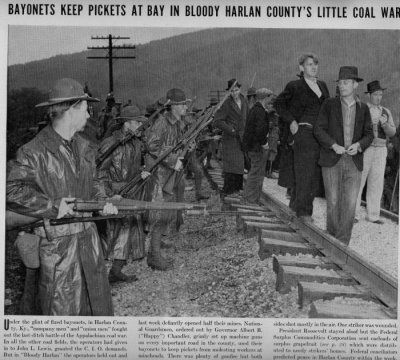
Successive generations (to include myself) were raised in a purely economic way. During this time, improvements in both the educational system and communications technology began providing more opportunities to broaden our horizons, but even then, coalfield school systems have been perpetually underfunded for unscrupulous reasons. Well educated children are more likely to go on to college, or find other work than coal mining, and could thereby create a worker shortage for the coal companies. Worker shortages require companies to raise wages in efforts to attract labor, which they, and their investors, really, really, hate doing. Instead, it’s better to have a captive workforce of poorly educated people desperate to avoid poverty and starvation.
Today, wages are much higher than they used to be, but not as much as one would expect given the amount of profit coal companies generate and the shear danger and long term negative health impacts coal miners must contend with.
Products of a System
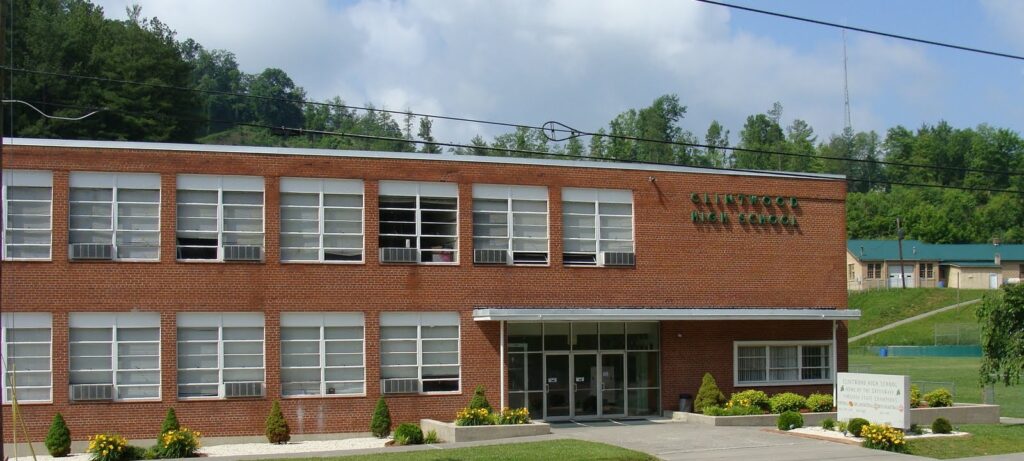
When I started high school in the early 90’s, we had to purchase our own textbooks. Yes, you heard that right. Dickenson County Public Schools only began furnishing textbooks to high school students beginning in 1994. If we had to pay for our own textbooks, you can only imagine the lack of wages and other resources our teachers suffered through. To make matters worse, persistent poverty in the area created poor home situations for many of my fellow students. Without physical and emotional supports at home, they slipped through the cracks while making some teacher’s lives pure hell.
I met many people in the mines from varying educational backgrounds. Some did decently well in high school, but like me, struggled to get to college. Some actually had a little college but preferred mining because it paid more than their degrees could get them in the area. More often than not however, there were those who did not do well in school, succumbing to the idea that they were just not capable of doing the work and getting good grades.
Many either squeaked through school to get their high school diploma, dropped out of high school and pursued a GED, or had neither a GED nor diploma.2 When they began making more money than some college graduates, they gloated at a system that always made them feel less. And it really does, both in terms of pay and job prestige.
Sometimes the choices were made for them given the system we were living in. Still, I do not like to use public education as a gauge of intelligence, because, as I previously mentioned, some of the smartest and best people on this Earth barely stepped foot into a school back in the day.
That being said, I have begun to judge Appalachian intelligence upon the choices people are now making.
Here are just a few things to consider….
Do people:
- Continue working in the coal mines for large paychecks while knowing they can be killed and will ultimately suffer debilitating long term health problems?
- Intentionally ignore scientific evidence regarding the detrimental health effects upon families who live near mining as a result of mining processes and the mono-economy perpetuated by the coal industry?
- Choose to ignore the history of Appalachian struggles against the coal industry and instead embrace a new found love of the industry by blindly accepting everything the industry tells them?
- Continuously sacrifice the environment necessary for the good health of our children and future generations?
- Go into tremendous debt for recreational items and/or unnecessarily large homes and vehicles based upon the income of an industry proven to have “booms and busts,” a decision that ultimately puts their family’s well-being at risk?
- Choose to use hearsay as their basis of knowledge in political decision making rather than taking the time to perform the proper research on various issues themselves?
- Choose to be racists or bigots?
- Support organizations such as “Coal Mining Our Future” that promotes the idea of their children being coal miners who will eventually face the same debilitating health and economic problems?
- Intentionally withdraw from the workforce to pursue government assistance while supporting a substance abuse problem?
- Currently stand up for their neighbors in a fight for the betterment of Appalachia even if it involves going without a big paycheck (similar to what our fathers did)?
Let me be the first to say that when I became a coal miner, I succumbed to the idiocy of heroism and self-sacrifice. My forefathers had done it to avoid starvation, but I was doing it for a higher income, more material wealth, and to some degree, as a social status in my community. I had no idea that there were negative environmental health consequences outside of the mines. I just didn’t think about it. I didn’t have time to in the day-to-day struggle of keeping my family fed and with decent healthcare.
I also made the poor choice of ignoring the struggles of my forefathers and actually believed the coal companies had a change of heart. Having worked in a corporate setting, I thought modern workplace policies would ensure proper treatment. Boy, was I f***ing stupid.
Still, I understand the economic motivation to remain, well, ignorant.
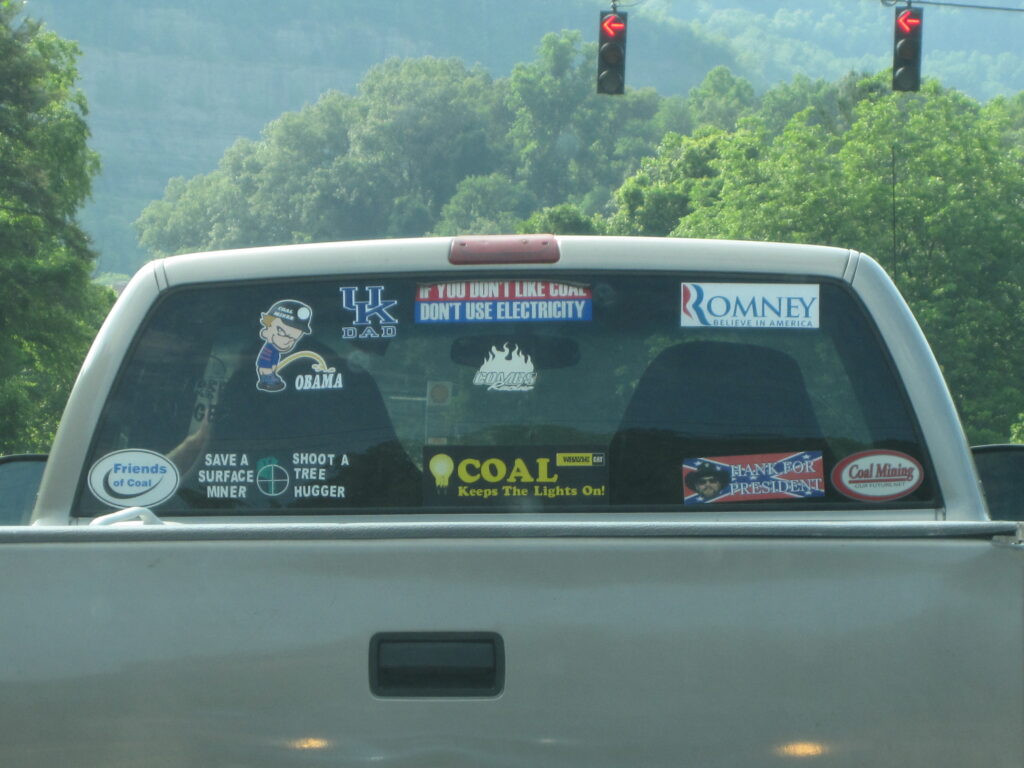
Today, when I look at Appalachia as a whole and I see the amount of “Friends of Coal” stickers plastered on people’s vehicles, I begin to realize that few folks have stopped to research what “Friends of Coal” really is and have made some pretty poor choices. So I’m on the fence with all of the stereotyping of Appalachian intelligence these days. It’s hard to tackle the idea of willful ignorance when, let’s say it again, “It’s difficult to get a man to understand something that his paycheck depends on him not understanding.” Upton Sinclair really nailed it on the head.
I don’t know that we can ever fully blame people caught in impossible economic situations, especially when they were never taught to think critically by school systems that are a product of coal industry politics. But that doesn’t mean we can’t try and get angry when they keep making bad choices, especially at the voting booths.
Could it be that we have started living up to the old stereotypes? When I think back to previous generations, I believe emphatically that it was wrong to call our ancestors “ignorant hillbillies.” Today, it’s hard to take in the many choices my fellow Appalachian people are making. I often wonder if they haven’t begun living up to the stereotypes placed upon us.
Who else would agree that cancer rates are on the rise in their hometowns, yet choose to ignore peer reviewed scientific reports on how coal companies are poisoning their water sources and then turn around to support the companies who are causing it all? Who would ignore a history wrought with honest to God human struggle against the power of the coal industry and instead begin singing the praises of companies who have never, and will never, care about the health and welfare of Appalachian people?
There are some truly wonderful and intelligent folks who are fighting the coal industry like hell right now to save Appalachia for our children, but sadly, those people are the minority and are even cursed at by their fellow Appalachians. So, where does the line get drawn? Does the stereotype fit modern day Appalachians?
I’m sorry but in the hopes that some of you (coal miners) are reading this, I’m going to tell you right now that you are making poor choices uplifting the coal industry are not making Appalachia look terribly great. You really need to rethink who you are supporting—rethink who you’ve sold out our heritage and our children’s future to—and start working harder for a better, healthier future for our children. It’s one thing to be dependent upon the coal industry, to do what you have to do to make ends meet, but if you are doing it in support of coal and your economic overlords, you need to think back to the decisions your union forefathers made.
Start by getting rid of your debts and using less. Learn your history and learn about the scientific reports regarding environmental health and coal mining. Then start cleaning house of politicians whose campaigns are funded by the coal companies—and whose cell phones are on the coal association’s speed dials.
Put in representatives willing to work towards a diverse economy, a better education system, and who will work to create jobs by 1. Making coal companies clean up their messes and 2. Bring in industries that really do have a future—such as those in energy efficiency.
It’s not just about making the smart choice; it’s about making the right choice. Otherwise, we have to admit we are a bunch of ignorant ass hillbillies and are just as dumb as everyone out there wants to believe we are.
- Eller, Ron. 1982. Miners, Millhands, and Mountaineers: Industrialization in the Appalachian South 1880-1930. University of Tennessee Press. ↩︎
- 06/02/2025: I went back and substituted in my local high school and had some students tell me they didn’t care about school because they knew they were just going to go into the mines and make good money there. ↩︎

